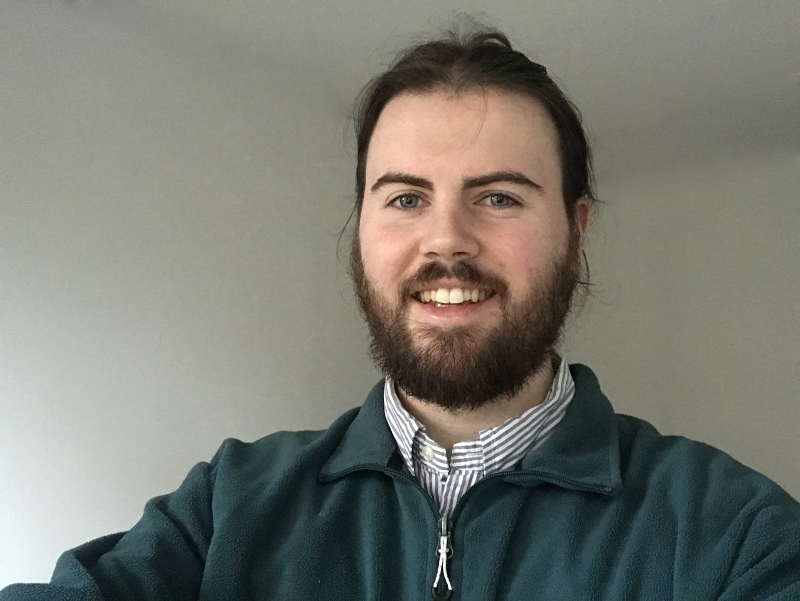
Ryan Quinn
In the summer directly after my bachelors I attended the Scuola Matematica Interuniversitaria in Italy. Then I pursued a masters in mathematics at the University of Amsterdam. During my masters I took part in the PCMI graduate summer school on motivic homotopy theory, the EWM-EMS summer school on chromatic homotopy theory, and a spring school on field theories and algebraic topology.
Next, with the support of the NUI Travelling Doctoral Studentship, I will undertake a PhD in the Mathematical Institute at Utrecht University. The Utrecht Geometry Centre is home to a large group of algebraic topologists and homotopy theorists. The opportunity provided by the NUI Travelling Doctoral Studentship to join this cohort is immense, and will be of enormous benefit to me.
This project studies orientations, symmetry, and the relation between these ideas. Orientations and symmetries are ubiquitous in natural sciences. In biology and chemistry the handedness of a compound may have different effects or interactions. More sophisticated, or higher, notions of orientation are rife in physics: spin structures underpin relativistic quantum mechanics, the next higher analog are string structures which arise in certain quantum field theories. Even in everyday life, the interplay between orientations and symmetry is evident; left and right-handedness are related by a mirror symmetry. The aim of this project is to systematically study the relation between orientations and shapes with arbitrary symmetries.
Mathematically this project lies in the area of global homotopy theory. This refers to the homotopy theory of spaces or spectra with a uniform and coherent action of all compact Lie groups simultaneously. The aim is to study orientations and Thom spectra in this context. In the classical setting, these ideas have seen much success as they allow us to tackle geometric problems using powerful techniques from homotopy theory. A well developed theory of orientations in the global equivariant setting will provide new tools and extend the range problems we can tackle in this way.
I'm honored to be awarded the NUI Travelling Doctoral Studentship. It offers a unique opportunity to learn from and collaborate with leading international researchers, while also allowing me to stay connected with the NUI community that first set me on this path. I'm super excited to embark on this challenge, and I hope I may eventually contribute to the NUI community.






















